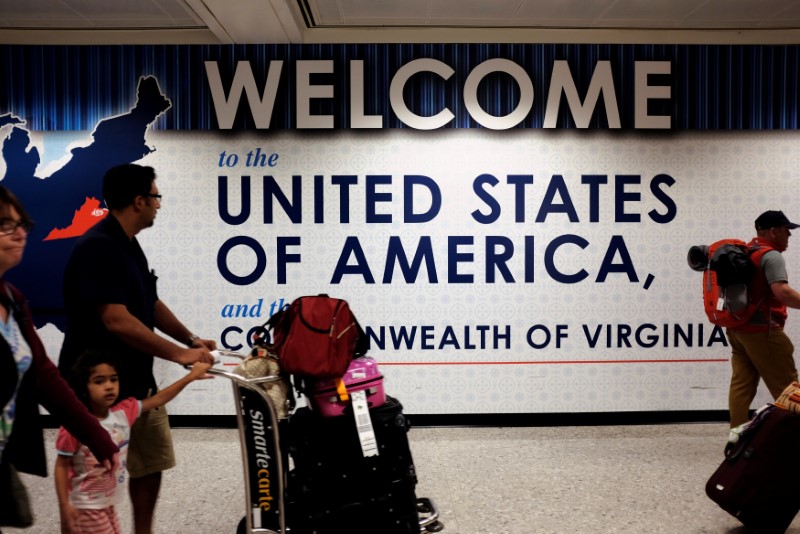Hawaii likely to succeed in proving ban violates federal immigration law: Judge

SAN FRANCISCO/NEW YORK (Reuters) — A U.S. judge on Tuesday blocked President Donald Trump's latest bid to impose restrictions on citizens from several countries entering the United States, which had been set to take effect this week.
The open-ended ban, announced last month, targeted people from Iran, Libya, Syria, Yemen, Somalia, Chad and North Korea, as well as certain government officials from Venezuela. It was the latest version of a policy that had previously targeted six Muslim-majority countries but had been restricted by the U.S. Supreme Court.
The state of Hawaii sued in federal court in Honolulu to block Trump's latest policy directive, arguing that federal immigration law did not give him the authority to impose the restrictions on six of those countries. Hawaii did not challenge entry restrictions relating to North Korea and Venezuela.
U.S. District Judge Derrick Watson in Honolulu had previously blocked Trump's last travel ban in March. In his ruling on Tuesday, Watson said Hawaii is likely to succeed in proving that Trump's latest travel ban violates federal immigration law.
The policy "suffers from precisely the same maladies as its predecessor: it lacks sufficient findings that the entry of more than 150 million nationals from six specified countries would be 'detrimental to the interests of the United States,'" Watson wrote.
The White House and the Justice Department did not immediately respond to a request for comment. At a news briefing, State Department spokeswoman Heather Nauert declined to comment on how it would affect State Department consular operations.
Hawaii Attorney General Doug Chin said in a statement: "Today is another victory for the rule of law."
As a candidate, Trump had promised "a total and complete shutdown of Muslims entering the United States."
In announcing the newest travel restrictions, the White House had portrayed them as necessary consequences for countries that did not meet new requirements for vetting of immigrants and issuing of visas. Those requirements were shared in July with foreign governments, which had 50 days to make improvements if needed, the White House said.
A number of countries made improvements by enhancing the security of travel documents or the reporting of passports that were lost or stolen. Others did not, sparking the restrictions.
Immigrant advocacy groups cheered the Hawaii ruling.
"We're glad, but not surprised, that President Trump's illegal and unconstitutional Muslim ban has been blocked once again," said Omar Jadwat, director of the American Civil Liberties Union Immigrants Rights Project, in a statement.
The ACLU and other groups have filed separate challenges to Trump's policy in a Maryland federal court. A ruling is still pending.
In the Hawaii case, Watson said the ban's national security rationale is undermined by the fact that it is not known how the president settled on the countries designated by the ban.
Watson also said the proclamation likely runs afoul of a prohibition in immigration law on nationality-based discrimination in issuing visas.




